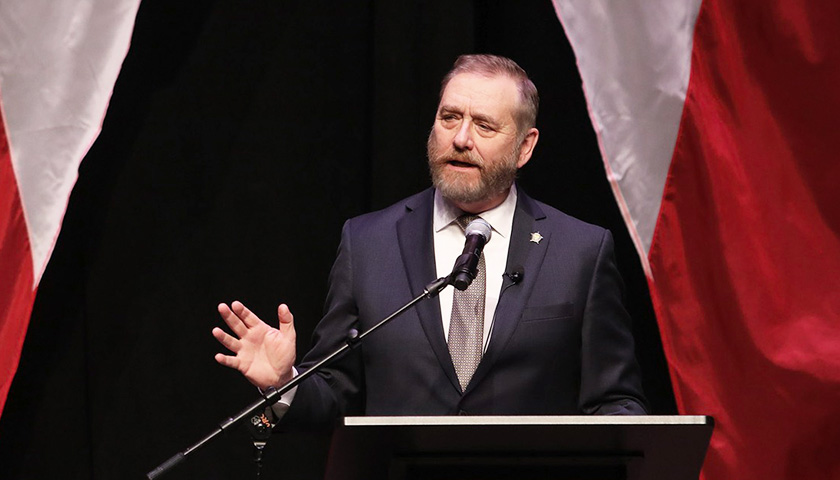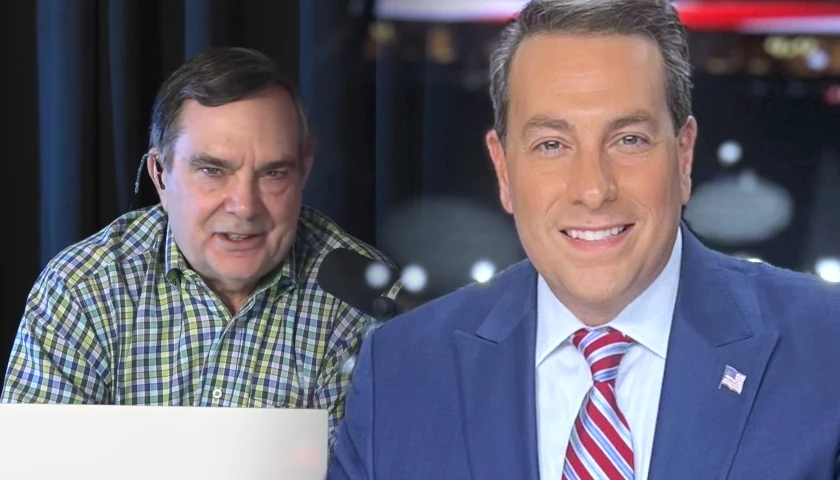Ohio Attorney General Dave Yost‘s decision to briefly “retire” prior to taking the oath for a second term in the same position has renewed discussion among public officials over pension “double dipping.”
The practice of retiring in order to trigger the collection of a pension while simultaneously drawing a public paycheck is legal.
According to Yost’s spokeswoman Bethany McCorkle, “Dave Yost filed paperwork with OPERS (Ohio Public Employees’ Retirement System) to receive his pension. He remains committed to public service and his duty as attorney general.”
Yost, 66, who is the state’s top prosecutor and law enforcement official, formerly held the positions of state auditor, prosecutor, county auditor, and Delaware city councilman.
He is now term-limited, but it is widely anticipated that he may run for a higher political post in the future, such as governor or the U.S. Senate.
According to his most recent financial disclosure filing with the Ohio Elections Commission, Yost reported a salary of $124,196 in 2021, with no other income.
The practice of double dipping is rather widespread among public employees and was formerly actively promoted by the state as a way to get retired public school teachers back into the classroom in order to fill a shortage.
One of the more common elected authorities to take advantage of it is judges, who, after being re-elected, formally retire and then take the oath to serve another term, drawing both a pension and pay.
A few legislators have also done this, such as state Representative Bill Seitz (R-Greene Township) who retired in 2018 and then continued to serve as a legislator.
Former Republican Speaker Bill Batchelder reported more than $100,000 in pension income while receiving a legislator’s salary according to his 2014 financial disclosure form.
Governor Mike DeWine’s 2021 financial disclosure form lists a pension from the US Office of Personnel Management from his time in Congress.
According to an Ohio Legislative Service Commission Report, in 2018, about 12,260 people retired and continued to work for at least $20,000 at a public employer covered by one of the state’s four pension systems.
According to Democratic Party Chairman Elizabeth Walters, double dipping is a betrayal of working families.
“While too many working Ohioans struggle to get by, Dave Yost is using the office of the attorney general to pad his own pockets instead of actually doing his job. With Ohio set to be the center of a federal court battle over the largest public corruption scandal in the country soon, we’re still waiting on any meaningful action from Dave Yost or the attorneys who work for him. Ohio taxpayers certainly aren’t getting their money’s worth,” Walters said.
But as Democrats decried Yost for his “retire rehire,” former policy director for the Ohio Senate Democratic Caucus and current Franklin County Administrator Kenneth Wilson is doing the same thing.
The Franklin County Commissioners accepted Wilson’s retirement and rehiring in the same resolution in order for him to collect his own pension earlier this month.
According to McGown Markling Attorneys at Law, Yost was in his right as retire-rehire “double dipping” is not against public policy.
“There is no general policy of discouraging OPERS retirees from returning to work in OPERS-covered positions,” Matthew Markling said.
Ohio permits double dipping in four of the state’s five public employee pension plans. The exception is the Ohio Highway Patrol Retirement System.
Former Republican state Representative John Becker sponsored unsuccessful House Bill (HB) 708 which would have eliminated the practice of double dipping in 2018.
According to Becker, although he thinks it’s unfair to taxpayers when this happens in the public sector because the same thing is typically not available to private sector workers. He does not blame people such as Yost for taking advantage of it while it is still legal.
“I do not blame double dippers for taking advantage of what the law allows,” Becker said.
How much Yost collects in pension payments is dependent on his years of public service, his last average salary, and his age.
Public employees in Ohio are not in the Social Security system, so the public retirement fund is often their primary pension.
– – –
Hannah Poling is a lead reporter at The Ohio Star and The Star News Network. Follow Hannah on Twitter @HannahPoling1. Email tips to [email protected].
Photo “Dave Yost” by Ohio Attorney General Dave Yost.





